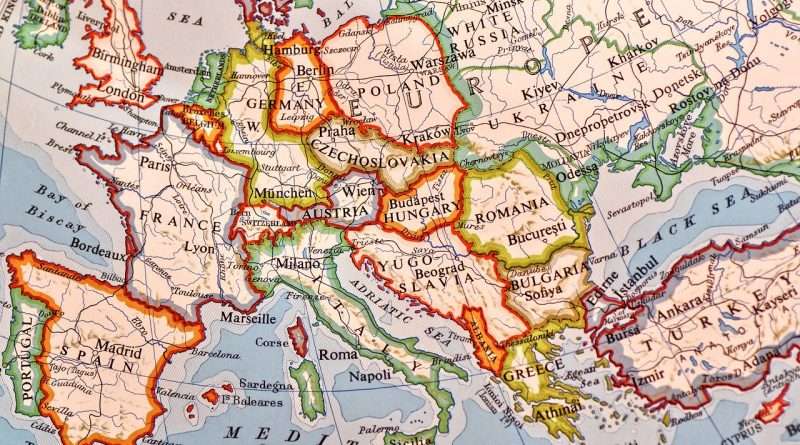Is Europe a Continent? The Great Debate
The question “Is Europe a Continent?” has been debated among geographers, historians, and political scientists. This debate delves into Europe’s geographical, cultural, and historical aspects, examining whether it stands as a distinct continent or forms part of the larger landmass, Eurasia.
Geographical Perspective
Europe as a Part of Eurasia: Geographically, Europe is considered a part of the Eurasian landmass. It shares this landmass with Asia, and together, they form the larger continent of Afro-Eurasia. According to some sources, Europe is delineated from Asia by the Ural Mountains, Ural River, Caspian Sea, Greater Caucasus, Black Sea, and the waterways of the Turkish Straits. However, these boundaries are only sometimes accepted, and the division between Europe and Asia remains largely a matter of historical and cultural distinction rather than clear geographical demarcation.
Cultural and Historical Context
Europe’s Distinct Identity: Historically and culturally, Europe has been viewed as a separate continent. This distinction dates back to the Ancient Greeks, who first identified the landmasses of Europe and Asia. Europe’s rich history, including the Renaissance, the Age of Enlightenment, and significant role in world exploration and colonization, has contributed to its distinct cultural identity.
Political Definitions: Politically, Europe comprises about fifty sovereign states, with Russia being the largest. The European Union and the Council of Europe are significant political entities representing European interests. This political delineation often influences the perception of Europe as a separate continent.
Debating the Continental Status
Against the Separate Continent Argument: Critics of Europe’s continental status argue that the division is more cultural and historical than geographical. They point out that if cultural diversity is a criterion, then Eurasia should not be divided into Europe and Asia since both regions are diverse.
In Support of Europe as a Continent: Proponents of Europe’s status as a separate continent emphasize its unique historical and cultural evolution, distinct from that of Asia. They also refer to the longstanding tradition of viewing Europe as a separate entity, which has been a part of Western education and cartography for centuries.
Direct Answer: Is Europe a Continent?
Yes, Europe is conventionally recognized as a continent. This designation stems from a combination of historical, cultural, and political factors rather than strictly geographical criteria. While Europe is part of the Eurasian landmass and shares many geographical features with Asia, it has been traditionally identified as a separate continent due to its distinct historical and cultural evolution and the political boundaries that have defined it over centuries.
The recognition of Europe as a separate continent is also influenced by its role in world history, its unique political landscape, and the way it has been consistently taught in educational systems and represented in cartography. Thus, despite the ongoing debate and the blurred geographical demarcation with Asia, Europe is widely accepted and referred to as a continent in most global contexts.
10 Fascinating Facts About the Continent of Europe
- Geographical Span: Europe is entirely located in the Northern Hemisphere, primarily in the Eastern Hemisphere. It is the westernmost peninsula of the Eurasian landmass.
- Political Landscape: The continent is home to approximately 50 sovereign states, with Russia being the largest by area.
- Population: As of 2023, Europe has a population of over 742 million, making it the third most populous continent after Asia and Africa.
- Largest and Smallest Nations: Russia occupies the largest area in Europe, while Vatican City has the smallest area and population.
- Capital Cities: Moscow, Russia’s capital, is the largest city entirely in Europe, with over 13 million residents. Istanbul, although larger, straddles both Europe and Asia.
- Islands and Peninsulas: Europe includes the world’s largest island, Greenland (belonging to Denmark), and the large peninsula of Great Britain.
- Cultural Significance: Europe is the birthplace of Western civilization, with ancient Greece and Rome being fundamental to its cultural heritage.
- Historical Influence: Europe played a central role in global affairs from the Renaissance through the colonial era, significantly influencing world history.
- Economic Milestones: The Industrial Revolution, which began in the 18th century in Great Britain, brought profound economic and social changes to Europe and the world.
- Modern Integration: The European Union represents a significant political and economic union in Europe, with the euro as a common currency among many of its member states.
What Did We Learn Today?
The debate over whether Europe is a continent is rooted in a blend of geographical, cultural, historical, and political factors. While geographically, it can be seen as part of the giant Eurasian landmass; its distinct historical and cultural evolution has led to its recognition as a separate continent in many circles. This debate, however, continues, reflecting the complexities of defining continents in a world rich in diversity and history.

